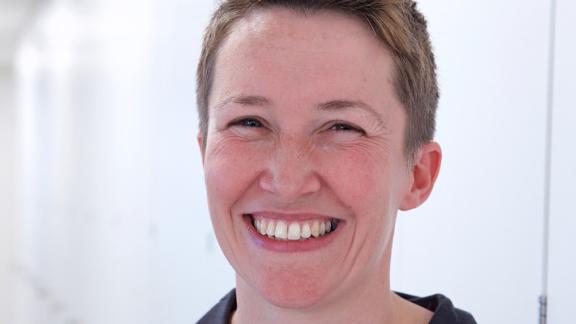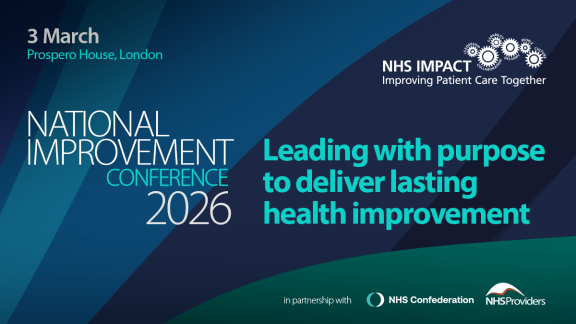Solving the wicked problem of health inequalities

With little detailed guidance on how to best manage health inequalities, the NHS Confederation has launched a project to support healthcare leaders adopt best practice to address this issue.
If you're interested in taking part in the project, please contact Ruth Lowe at the NHS Confederation ruth.lowe@nhsconfed.org
This article was first published in Healthcare Leader on 10 November 2023.
The NHS Confederation’s recent flagship report, State of Integrated Care Systems 2022/23, found that tackling health inequalities was the one thing, putting aside national must-dos, that system leaders would like to have achieved in five years’ time. It also found, though, that 20 per cent of integrated care systems (ICSs) don’t currently feel confident that their systems are able to fulfil their role in tackling inequalities, and no systems responding to the survey reported that they felt very confident in tackling health inequalities.
The [life-expectancy] gap represents the consequences of a failure to address the wider determinants of health over decades
The scale of the health inequalities challenge can often feel daunting and overwhelming for system leaders. The question is how they can meaningfully play their part in addressing this in a socio-economic landscape that has seen the life-expectancy gap increase since 2015.
The gap represents the consequences of a failure to address the wider determinants of health over decades. We are well versed in the numerous factors that have created the divide and perpetuate the problem: income, housing, education and employment status several among them.
Helping to close it is one of the most wicked of problems facing any public sector organisation, and ICSs are taking on this challenge as an opportunity to make a transformative, positive impact across their communities. There is much that the NHS is already doing to reduce the gap, for example at University Hospitals Coventry and Warwickshire Trust, where they are considering social factors, such as deprivation and ethnicity, as well as clinical factors when prioritising waiting lists for some services.
Key questions to ask are how can transformation be delivered at pace; and which interventions deliver best value for money?
The scale of the challenge around inequalities in access, experience and outcomes for local communities is vast, and for ICSs – which have reducing health inequalities as one of their statutory aims – key questions to ask are how can transformation be delivered at pace; and which interventions deliver best value for money?
ICS leaders are exploring whether to invest in initiatives that will have a long-term benefit for more people, or those that will make a greater difference to a smaller cohort, in the short term – all while simultaneously assessing the impact of those choices.
National priorities and NHS England’s operating planning guidance offer direction but they don’t extend to offering detail on which options to select, the pathway to implementing change and the value added.
In 2022/23, NHS England allocated £200 million to address health inequalities across the country – investment which has now been added to the baseline funding for ICSs.
Part of this project will centre on analysing what works at a practical level, so that best practice can be shared and adopted locally
It is against this backdrop that the NHS Confederation commissioned Leeds Beckett University, in partnership with the CQC and Clarity Consulting, to understand how systems have made decisions on where to invest their allocated budgets, the culture and leadership factors behind this, and the impact this has had, or is expected to have.
Part of this project will centre on analysing what works at a practical level, so that best practice can be shared and adopted locally. This will also include the development of a suite of tools that can be disseminated and used by systems to focus resources where they can have the greatest impact.
By gaining greater insight into impactful actions, ICS leaders can learn how best to invest resources and reduce health inequalities in their populations in the coming years. The quicker we recognise the factors that led to impactful decisions, the more confident we can be that future resources can be channelled into areas where they will make the greatest difference.
We are already seeing collaborative work with local authorities and the voluntary sector, which includes data and intelligence being shared to build comprehensive pictures of need and active use of the Core20PLUS5 model to focus discussions within systems.
However, many issues still need to be tackled. These include building a robust evidence base that shows the potential return on investment from different initiatives and ensuring that projections of impact are not overly optimistic. Where best practice examples exist, they can be useful but are often unvalidated and lack the detailed evaluation needed to support replication in another setting.
There is no hiding from that the fact that there has been a significant increase in the life expectancy gap since 2015. Tackling health inequalities is one of the four statutory purposes of ICSs to support communities to live long, healthy lives.
To date more than 85 per cent of ICSs have volunteered to take part in this important project which will support healthcare leaders to adopt best practice and turn the tide on health inequalities.
If you are interested in getting involved or learning more about this project, please contact Ruth Lowe, Policy Associate at the NHS Confederation ruth.lowe@nhsconfed.org
Sarah Walter is director of the NHS Confederation’s ICS Network and Andrew Moore is a partner from Clarity Consulting



